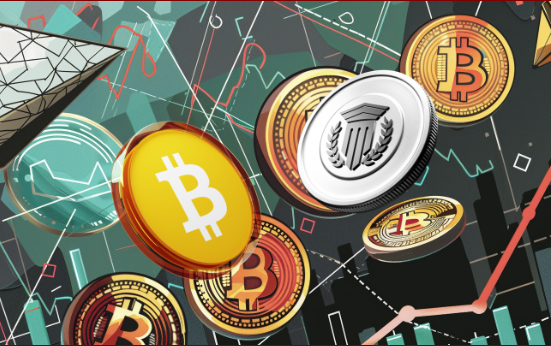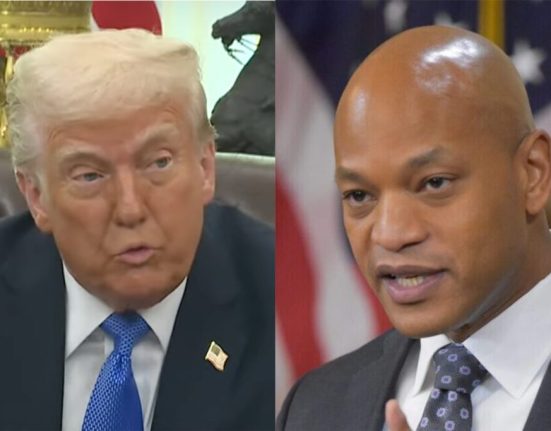This is an audio transcript of the FT News Briefing podcast episode: ‘US investment banking expected to stay in the doldrums’
Persis Love
Good morning from the Financial Times. Today is Monday, July 14th, and this is your FT News Briefing. The EU delays imposing tariffs on the US. Investment banking on Wall Street is still feeling the pain. Plus, it’s been 10 years since Greece’s economy was in dire straits. We take a look at how it turned things around. I’m Persis Love, and here’s the news you need to start your day.
[MUSIC PLAYING]
Persis Love
The EU is pausing plans to hit the US with tariffs. It hopes to reach a new trade agreement instead. The European Union had planned to impose €21bn worth of tariffs on US goods starting this Tuesday. But then this weekend, US President Donald Trump said he would slap the bloc with 30 per cent tariffs beginning August 1st.
So now the EU is delaying its levies. European Commission president, Ursula von der Leyen said they would prefer a negotiated solution with the US.
[MUSIC PLAYING]
Looks like there’s gonna be another bad quarter for US investment banking. For the 14th quarter in a row, analysts are predicting investment banking will make up less than 25 per cent of Wall Street revenues at the biggest US banks. Meanwhile, trading is flourishing. We’ll get the final figures this week when major US banks report their earnings. But here to give us a preview is the FT’s Joshua Franklin. Hi Josh.
Joshua Franklin
Hi there.
Persis Love
OK, so give me the details then. What are you expecting to see in earnings reports this week?
Joshua Franklin
So really, it’s a bit of feast and famine for Wall Street businesses at these large banks. So if you think about Wall Street activities at large US banks, we’re talking JPMorgan Chase, Goldman Sachs, Morgan Stanley, they make money on Wall Street from both trading and investment banking. And really, we’ve had this spectacular run over the last, about four or five years now for trading where these volatile financial markets have been incredibly lucrative for the big banks.
But it’s been a much patchier side of things on the investment banking side of the house. Especially over the last three years with rising interest rates and the same uncertainty of creating these volatile markets really dampening activity in the boardroom in terms of feeling confident to do acquisitions and take companies public. So we’re gonna see a real continuation of this trend of just trading, making a lot of money for these big banks, but investment banking is still being pretty muted.
Persis Love
OK. So investment banking is not doing so good, but the trading side is doing better. Why is that the case?
Joshua Franklin
It’s interesting because in the last three years, you’ve had rising interest rates, you’ve had geopolitical conflicts in the Ukraine and the Middle East, and then Donald Trump’s return to the White House and his policies on tariffs and trade. And that’s created an enormous amount of market volatility that has been very lucrative for the big banks. They facilitate and finance a lot of this trading. And so that’s really boosted them.
Persis Love
So tell me more. Why are the investment banking sides underperforming?
Joshua Franklin
Yes. So if you think about investment banking is based a lot of time on confidence about the direction of the economy, people have to feel confident about buying a company, selling a company at the right price, taking a company public, and you’ve seen the certainty in terms of the environment to do those sorts of transactions just has been much patchier. You’ve also had higher borrowing costs, which has made it harder for people to borrow money to do deals. And then also in the US, certainly, the regulatory environment to get deal approval has been pretty tough. And so all of that has just kind of stunted the investment banking side of things.
Persis Love
And what’s the bottom line for banks here? I mean, how are they doing overall?
Joshua Franklin
So on the whole, I don’t think you need to cry for the banks. They’re still doing OK. There’s still a lot of optimism that investment banking eventually will materialise for some kind of recovery. Profits are probably going to be down on average at the six big banks by assets, but I think they’re still at pretty elevated levels relative to where they were before.
And I think there’s also some optimism around a kind of slightly lighter touch regulatory environment under the Trump administration for the banks in terms of how stringent the rules are for them. The investment bankers on Wall Street. They’re hoping that this dry spell will eventually come to an end.
Persis Love
Joshua Franklin is the FT’s US banking editor. Thanks, Josh.
Joshua Franklin
Thanks very much.
[MUSIC PLAYING]
Persis Love
If you want a good economic comeback story, look no further than Greece. 10 years ago, it was having a financial meltdown and was on the verge of exiting the euro. But now it’s exited its bailout programme and it’s even outpacing the growth of other richer countries. But there’s still some unfinished business in Greece. Here to explain is the FT’s Eleni Varvitsioti in Athens. Hi, Eleni.
Eleni Varvitsioti
Hi.
Persis Love
So just take us back to the 2015 meltdown. What was going on with Greece’s economy?
Eleni Varvitsioti
So maybe we should start a bit earlier because Greece faced a huge economic crisis back in 2010. The country had to sign to three international bailouts over eight years to stay afloat. So in 2015, a radical, left populist government took over. It’s young Prime Minister Alexis Tsipras he said that, I’m gonna bring you a better deal. I will reject the country’s international bailout. He went into six months of negotiations that led to nowhere. That left the country on the brink of exiting the euro, financial meltdown, the banks were closed. It was a step before economic catastrophe. So when Tsipras was faced with this actual economic disaster he did a somersault or toúmpa, as the Greeks call it, and he actually signed a third bailout programme for Greece. And this was a new era of Greek compliance and actually he laid the foundations of the recovery.
Persis Love
Yeah. And Greece really did have a huge economic turnaround after that. How did the country pull it off?
Eleni Varvitsioti
I think first it was a bailout that Greece really reformed its fiscal condition, but then the real progress happened when a centre-right government takes over in 2019. And now we’re talking about one of the fastest-growing economies in the Eurozone. And many important reforms took place in these past six years. One was a digital transformation of the public sector, which means that, as you can understand, a sharp reduction in red tape. Another major win has been Greece’s progress in tackling tax evasion. So also the centre-right government did some strides in cleaning up the banking sector. I mean, these are major reforms that have happened in the past years.
Persis Love
That all sounds a little too good to be true. Are there any risks that Greece still faces?
Eleni Varvitsioti
Yeah, of course. Big risks and big issues still. The investment as a share of GDP is still very low. It’s still really hard to invest in Greece. If you’re a foreign company, you have lots of issues. The Greek economy is more based on sectors like tourism and less in high-value production goods services based on innovation. And what has been very painful here is although, you know, Greece has been growing, wages, especially in the private sector, have not grown as much. And because of the cost of living, which has increased due to inflation, more than a fourth of Greece’s population is at risk of poverty or social exclusion. So still people are having a hard time to make it till the end of the month.
Persis Love
And this period of Greece’s economy, did it have any sort of impact on the EU as a whole?
Eleni Varvitsioti
I think that Greece left a big legacy on the Eurozone as well. I mean, when the crisis hit Greece, the Eurozone was completely unprepared for it. There were no mechanisms, there was no permanent rescue fund. The legacy of Greece’s bailouts underscored the need for EU solidarity and for building a very big recovery fund. So if there’s a future crisis, the Eurozone is much better prepared. It has its own permanent rescue fund. It has in place a new system for winding up failed banks. Of course, one would say that it’s not complete. The Eurozone still has no sizeable budget or permanent fund to offset shocks. It has moved significantly, but it’s still not a complete union.
Persis Love
Eleni Varvitsioti is the FT’s Greece and Cyprus correspondent. Thanks, Eleni.
Eleni Varvitsioti
Thank you.
Persis Love
You can read more on all of these stories for free when you click on the links in our show notes. This has been your daily FT News Briefing. Check back tomorrow for the latest business news.







